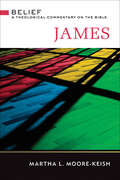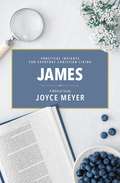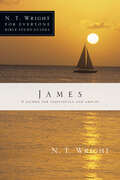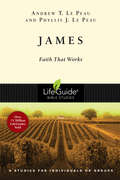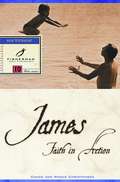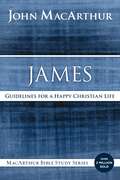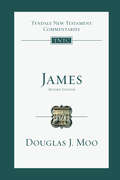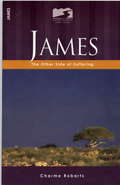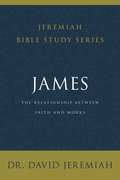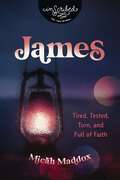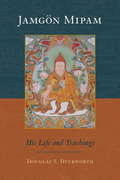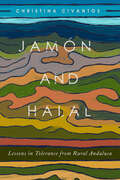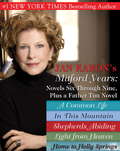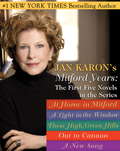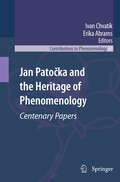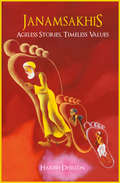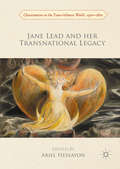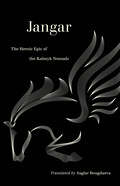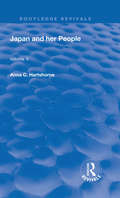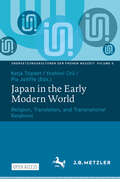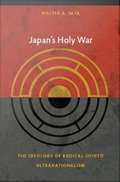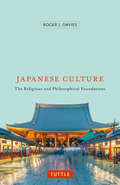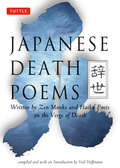- Table View
- List View
James: A Letter to the Scattered
by Earnest GrahamAn ancient letter that inspired deeds bravery and compassion in millions of lives.<P><P> In James: A Letter to the Scattered, Earnest Graham's dramatic illustrations follow women and men around the globe and through time. Follow hunted Christians into Roman catacombs, accompany errands of mercy in modern hospital corridors, see courage and kindness amidst the carnage of the Thirty Years' War, witness the fight for justice in 19th-century Mexico, and march beside protestors in 1960s Alabama.<P> A Letter to the Scattered, the first in a series of graphic novels from Olive Branch Books, brings the ancient wisdom of the Epistle of James to a new audience.<P> Advisory: Bookshare has learned that this book offers only partial accessibility. We have kept it in the collection because it is useful for some of our members. To explore further access options with us, please contact us through the Book Quality link on the right sidebar. Benetech is actively working on projects to improve accessibility issues such as these.
James: Biblical Commentary
by Joyce MeyerPut your faith into practice on a daily basis and grasp the practical truths of God's Word with this in-depth commentary on James from Internationally renowned Bible teacher.James has so much to say about living a powerful and effective life in Christ. The book addresses a variety of topics important to growing your faith and teaches that you not only need to read the Word of God and know what it says, but you also need to act on it. In this comprehensive biblical commentary, Joyce Meyer offers you practical insights for studying the book of James, with room for personal reflections that will help you grasp the truths in God's Word. You'll discover how to identify life-changing wisdom and get a better understanding of God's plan and purpose for your life.Part of her first-ever biblical commentary series, Joyce's book on James will stir your faith in God and inspire you to live it out in practical ways because of your love for Him and desire to glorify Him in your life.
James: Faith That Works (N. T. Wright for Everyone Bible Study Guides)
by N. T. WrightEvery generation in the church worries, rightly, about people who just glide along, seeming to enjoy what they hear in church but without it making any real difference. James faced exactly the same problem in the very first generation. So it's not surprising that translating belief into action--making sure faith is the real thing--is near the heart of his message. That kind of faith, he explains, is the faith that matters, the faith that justifies, the faith that saves. We need that kind of faith today. These nine studies on James's passionate letter will help you live out a faith that makes a difference.
James: Faith That Works (Single User License LBS)
by Andrew T. Le Peau Phyllis J. Le PeauWe all want a faith that won't let us down in times of trouble or loss, uncertainty or fear. A faith that can pull us through the worst--and best--times in our lives. This is the kind of faith that James writes about. It is a faith that we must practice day by day. These studies by Andrew and Phyllis Le Peau on the teaching of James will help us grow a steadfast faith that can carry us through all the ups and downs of life.
James: Faith in Action (Fisherman Bible Studyguide Series)
by Winnie Christensen ChuckPut Some Muscle Behind Your Faith. We live in a world characterized by instability, in-fighting, materialism, and words without actions. Sadly, no one is immune to these problems. Centuries ago, the apostle James could not envision the world we would live in, but he did address the issues we would face. Building a bridge between first-century Christianity and our lives today,James: Faith in Action,shows how Christianity can work in a postmodern world and calls you to an active allegiance to Jesus Christ and a commitment to living out your faith through bold action. 10 studies for individuals or groups. From the Trade Paperback edition.
James: Guidelines for a Happy Christian Life (MacArthur Bible Studies)
by John F. MacArthurThe apostle James, the oldest half-brother of Jesus, was a key leader in the Jerusalem church. During the early days of the young church, the Jewish believers had been scattered by persecution. Out of compassion, James wrote this epistle to confront them and motivate them to test the quality and consistency of their faith.Pastor John MacArthur will take you through the book of James, passage by passage, so that you can better understand this short but powerful book and how James gives us practical guidance on issues that also measure our true faith and our spiritual fruitfulness. James calls all believers—then and now—to live a life that demonstrates saving faith marked by godly behavior.—ABOUT THE SERIES—The MacArthur Bible Study series is designed to help you study the Word of God with guidance from widely respected pastor and author John MacArthur. Each guide provides intriguing examinations of the whole of Scripture by examining its parts and incorporates:Extensive, but straight-forward commentary on the text.Detailed observations on overriding themes, timelines, history, and context.Word and phrase studies to help you unlock the broader meaning and apply it to your life.Probing, interactive questions with plenty of space to write down your response and thoughts.
James: Live What You Believe (Tyndale New Testament Commentaries #Volume 16)
by Douglas J. MooPreaching's
James: The Other Side of Suffering
by Charme RobartsInsights into the book of JamesIt has become customary to ask the question: Why do bad things happen to good people? The epistle of James turns this question on its head, asking instead: How will you respond when bad things happen to you? In this immensely practical letter to the earliest Christians, the respected apostle encourages his listeners to take a different view of suffering - to see it, in fact, as an opportunity to grow into the people God is calling us to be.
James: The Relationship Between Faith and Works (Jeremiah Bible Study Series)
by Dr. David JeremiahFollow Dr. Jeremiah through the book of James in a chapter-by-chapter study that will help you understand what it meant to the people at the time it was written, and what it means to Christians today. The connection between faith and works lies at the very heart of the letter of James. The author of this short letter is concerned not only with what we as followers of Christ believe but also with how those beliefs shape our actions.James' words contain enduring practical advice for putting faith into action.Each of this study's twelve lessons is clearly organized to include:Getting Started: An opening question to introduce you to the lesson.Setting the Stage: A short reflection to explain the context of the study.Exploring the Text: The Scripture reading for the lesson with related study questions.Reviewing the Story: Questions to help you identify key points in the reading.Applying the Message: Questions to help you apply the key ideas to their lives.Reflecting on the Meaning: A closing reflection on the key teachings in the lesson.—ABOUT THE SERIES—The Jeremiah Bible Study Series captures Dr. David Jeremiah's forty-plus years of commitment in teaching the Word of God. In each study, you'll gain insights into the text, identify key stories and themes, and be challenged to apply the truths you uncover to your life. By the end of each study, you'll come away with a clear and memorable understanding of that Bible book.
James: Tired, Tested, Torn, and Full of Faith (InScribed Collection)
by Micah MaddoxLive full of faith through hard timesDo you ever feel like you can&’t take one more thing? You&’re on the edge. Your nerves are shot. Your mind is done. Your body is tired, and your emotions are a mess. If you could gather yourself for even a moment you might explode at the reality of all you&’ve been through. In the face of the fears, frustrations, and failures of this world, we have a choice. We can sit and stare at the life we live and hope something changes. Or we can rise up and walk in faith.In this Bible study, author and speaker Micah Maddox walks you through the book of James and compares the teaching of James with what Jesus said in the Sermon on the Mount from Matthew and the wisdom of Solomon we find in Proverbs. When we discover the themes of what a faith-filled life looked like before, during, and after the time of Christ, we see how Scripture points us to honor God in an active life of faith.This five-week study will help you to:Revisit the foundation of your faithLook to God first in hard situationsDiscover faith isn&’t a list of do&’s and don&’tsMove from a place of struggle to a place of comfortGain a fresh perspective on how to live full of faith when feeling tired and testedIncludes historical and biblical background insight and questions for reflection.InScribed is a collection of studies that lead women to not just survive but thrive by encouraging them to immerse themselves in the Word of God.
Jamgon Mipam: His Life and Teachings
by Jamgon Mipam Douglas DuckworthJamgön Mipam (1846-1912) is one of the most extraordinary figures in the history of Tibet. Monk, mystic, and brilliant philosopher, he shaped the trajectory of Tibetan Buddhism's Nyingma school. This introduction provides a most concise entrée to this great luminary's life and work. The first section gives a general context for understanding this remarkable individual who, though he spent the greater part of his life in solitary retreat, became one of the greatest scholars of his age. Part Two gives an overview of Mipam's interpretation of Buddhism, examining his major themes, and devoting particular attention to his articulation of the Buddhist conception of emptiness. Part Three presents a representative sampling of Mipam's writings.
Jamón and Halal: Lessons in Tolerance from Rural Andalucía
by Christina CivantosContemporary Spain reflects broader patterns of globalization and has been the site of tensions between nationalists and immigrants. This case study examines a rural town in Spain’s Andalucía in order to shed light on the workings of coexistence. The town of Órgiva’s diverse population includes hippies from across Europe, European converts to Sufi Islam, and immigrants from North Africa. Christina Civantos combines the analysis of written and visual cultural texts with oral narratives from residents. In this book, we see that although written and especially televisual narratives about the town highlight tolerance and multiculturalism, they mask tensions and power differentials. Toleration is an ongoing negotiation, and this book shows us how we can identify the points of contact that create robust, respect-based tolerance. “This is a book that is both a personal account and a rigorous academic study. It is a model for the kind of engaged humanistic work we are now beginning to see as a hallmark of the post-theory moment, and one that remembers the hard lessons of ethnographic fieldwork as well as the challenging foundational work from philosophically-tinged theory.” —Debra A. Castillo, Cornell University “Filled with rich descriptions and interwoven personal anecdotes of both Civantos and her interlocuters that complement scholarly analysis.” —Jessica R. Boll, Carroll University
Jan Karons Mitford Years: Novels Six Through Nine; Plus a Father Tim Novel
by Jan KaronVisit America's favorite small town one book at a time. From the #1 New York Times bestselling author Jan Karon, this is the new ecollection of novels six through nine in the beloved Mitford Years series, plus Home to Holly Springs, the first novel in the Father Tim series. Readers have come to feel at home in Mitford, the little town with the big heart. As this charming mountain village works its magic, you'll laugh, you'll cry, and you'll quickly make friends who feel like family--for the residents of Mitford are the most ordinary people who live the most extraordinary lives. And in Home to Holly Springs, you will travel back with Father Tim to his childhood Mississippi home, where he discovers the awesome power of love and forgiveness.
Jan Karons Mitford Years: Novels Six Through Nine; Plus a Father Tim Novel
by Jan KaronVisit America’s favorite small town one book at a time. From the #1 New York Times bestselling author Jan Karon, this is the new ecollection of novels six through nine in the beloved Mitford Years series, plus Home to Holly Springs, the first novel in the Father Tim series. Readers have come to feel at home in Mitford, the little town with the big heart. As this charming mountain village works its magic, you’ll laugh, you’ll cry, and you’ll quickly make friends who feel like family—for the residents of Mitford are the most ordinary people who live the most extraordinary lives. And in Home to Holly Springs, you will travel back with Father Tim to his childhood Mississippi home, where he discovers the awesome power of love and forgiveness.
Jan Karons Mitford Years: The First Five Novels
by Jan KaronVisit America's favorite small town one book at a time. From the #1 New York Times bestselling author Jan Karon, this is the new ecollection of the first five novels in the beloved Mitford Years series. Readers have come to feel at home in Mitford, the little town with the big heart. As this charming mountain village works its magic, you'll laugh, you'll cry, and you'll quickly make friends who feel like family-for the residents of Mitford are the most ordinary people who live the most extraordinary lives. A visit to Mitford is good for the soul, and now you can visit it again and again.
Jan Patočka and the Heritage of Phenomenology
by Ivan Chvatík Erika AbramsWhereas for the wider public Jan Patocka is known mainly as a defender of human rights and one of the first spokespersons of Charter 77, who died in Prague several days after long interrogations by secret police of the Communist regime, the international philosophical community sees in him an important and inspiring thinker, who in an original way elaborated the great impulses of European thought - mainly Husserl's phenomenology and Heidegger's philosophy of existence. Patocka also reflected on history and the future of humanity in a globalized world and laid the foundations of an original philosophy of history. His work is a subject of lively philosophical discussion especially in French and German-speaking countries, and recently also in Spanish-speaking, in U.S.A., and in the Far East. Scholars from around the world who are interested in the philosophy of Jan Patocka gathered in Prague to commemorate his centenary and the thirtieth anniversary of his death. The conference explored the significance of his work and its continuing influence on contemporary philosophy. The volume presents selected papers from the conference in English language.
Janamsakhis: Ageless Stories, Timeless Values
by Harish DhillonJanamsakhis, as the name suggests, are stories that claim to reveal the life of the first Guru, Nanak Dev, in a chronological manner. The earliest known Janamsakhi dates back to 1658, nearly 120 years after the death of Guru Nanak in 1539. None of the Janamsakhis can claim to be the most authentic or authoritative version as, through the years, each chronicler of the Guru’s life has added and altered the narrative according to the need of the times. In this volume, Dr Harish Dhillon has chosen the twenty most inspiring and interesting stories about the life and times of Guru Nanak. While the language may be contemporary, at its core this narrative has the same venerable feel that marked the tone of Janamsakhis written centuries ago. Through this work, the author has tried to make the life of the Guru more accessible to the current generation. This book enlightens as much as it informs, while focussing on the Guru’s teachings as well as the various udasis (travels) he undertook to spread the message of brotherhood, equality and love. This book will be of immense value to anyone with a particular interest in religious studies, Indian history or in simply learning more about the life of Guru Nanak.
Jane Lead and her Transnational Legacy
by Ariel HessayonThis book concerns one of early modern England's most prolific female authors, Jane Lead (1624-1704). Well-researched and clearly written, these essays focus on aspects of Lead's thought including her attitudes towards Calvinism, mysticism, androgyny and the apocalypse, her role within the Philadelphian Society, and her transnational legacy - particularly in the German-speaking world and North America. This book suggests that Lead was far more radical than has been supposed. It argues that her religious journey had staging posts, namely an initial Calvinist obsession with sin and predestination wedded to a conventional Protestant understanding of the coming apocalypse, then the introduction of Jacob Boehme's teachings and accompanying visions of a female personification of divine wisdom and finally, the adoption of the doctrine of the universal restoration of all humanity. It locates Lead within a continuing tradition of puritan pastoral thought, showing how her personalised view of the millennium differed from most of her contemporaries and discussing her influence on Pietists and their conceptions of bodily transmutation. It also discusses strategies available to female authors and manuscript circulation as an alternative to print and examines her initial continental reception, particularly within Pietist and Spiritualist circles. Lastly, it traces her afterlife through the relationship between the Philadelphians and the French Prophets, the interest in Lead among the followers of Joanna Southcott and her successors, and the appropriation of Lead's prophecies by two twentieth century movements: Mary's City of David and the Latter Rain movement.
Jangar: The Heroic Epic of the Kalmyk Nomads
by Saglar BougdaevaThe first English translation of a Kalmyk epic nearly lost to history. This is the first English translation of Jangar, the heroic epic of the Kalmyk nomads, who are the Western Mongols of Genghis Khan’s medieval empire in Europe. Today, Kalmykia is situated in the territory that was once the Golden Horde, founded by the son of Genghis Khan, Juchi. Although their famed khanates and cities have long since disappeared under the sands of the Great Eurasian Steppe, the Kalmyks have witnessed, memorized, and orally transmitted some of the most transformative developments, both victorious and tragic, in the history of civilizations. A tribute to the protectors of the mythical country Bumba, Jangar reflects the hopes and aspirations of the Kalmyk people as well as their centuries-long struggle for their cultural existence. This new English translation is more than a tribute to the artistic creativity and imagination of the Kalmyk people—it is also an important step in their struggle for cultural survival. It was only after centuries of oral transmission that the songs and stories surrounding Jangar were written down. When the first translation, into Russian, finally appeared, Stalin had the entire Kalmyk population deported to Siberia and ordered that their national literature be eliminated from the published world. This Soviet repression has had enormous consequences for world literature, silencing nomadic voices and keeping hidden their distinctive contributions. Making Jangar available in English is a landmark event, bringing a lost classic to the world’s attention and restoring the voices of an almost-erased tradition at the heart of the history of Eurasia.
Japan and Her People: Vol. II (Routledge Revivals)
by Anna C. HartshorneThis book provides an overview of Japan in late 19th century and its history. It also provides an insight of Japanese society as it moved from the traditional Edo period lifestyle towards industrialization and explores Japan's lifestyles, customs, culture, and everyday behavior.
Japan in the Early Modern World: Religion, Translation, and Transnational Relations (Übersetzungskulturen der Frühen Neuzeit #5)
by Pia Jolliffe Katja Triplett Yoshimi OriiOpen Access. Early modern transnational relations and personal encounters were influenced by interactions between Japan and the regions that had become connected to it through expanding global trade and missionary networks. Translation activities linked to Christian missionary activities, overseas trade, and political upheaval in these places all contributed to shaping these interactions. Adopting an interdisciplinary perspective, this volume explores religion, translation, and transnational relations in the context of the colonial and missionary enterprises involving Japan, between 1550 and 1800. It focuses on the early Catholic mission to Japan, discussing both Protestant and local religious reactions to it, and the publications of the Jesuit mission press in Japan. A survey of the subsequent centuries of scholarly involvement with translational materials in Asian languages further suggests that translation had a formative influence on the intellectual world in the Early Modern period.
Japan's Holy War: The Ideology of Radical Shint Ultranationalism
by Walter. A. SkyaJapan's Holy War reveals how a radical religious ideology drove the Japanese to imperial expansion and global war. Bringing to light a wealth of new information, Walter A. Skya demonstrates that whatever other motives the Japanese had for waging war in Asia and the Pacific, for many the war was the fulfillment of a religious mandate. In the early twentieth century, a fervent nationalism developed within State Shintō. This ultranationalism gained widespread military and public support and led to rampant terrorism; between 1921 and 1936 three serving and two former prime ministers were assassinated. Shintō ultranationalist societies fomented a discourse calling for the abolition of parliamentary government and unlimited Japanese expansion. Skya documents a transformation in the ideology of State Shintō in the late nineteenth century and the early twentieth. He shows that within the religion, support for the German-inspired theory of constitutional monarchy that had underpinned the Meiji Constitution gave way to a theory of absolute monarchy advocated by the constitutional scholar Hozumi Yatsuka in the late 1890s. That, in turn, was superseded by a totalitarian ideology centered on the emperor: an ideology advanced by the political theorists Uesugi Shinkichi and Kakehi Katsuhiko in the 1910s and 1920s. Examining the connections between various forms of Shintō nationalism and the state, Skya demonstrates that where the Meiji oligarchs had constructed a quasi-religious, quasi-secular state, Hozumi Yatsuka desired a traditional theocratic state. Uesugi Shinkichi and Kakehi Katsuhiko went further, encouraging radical, militant forms of extreme religious nationalism. Skya suggests that the creeping democracy and secularization of Japan's political order in the early twentieth century were the principal causes of the terrorism of the 1930s, which ultimately led to a holy war against Western civilization.
Japanese Culture: The Religious and Philosophical Foundations
by Roger J. DaviesJapanese Culture: The Religious and Philosophical Foundations takes readers on a detailed and thoroughly researched journey through Japan's cultural history.This much-anticipated sequel to Roger Davies's best-selling The Japanese Mind provides a comprehensive overview of the religion and philosophy of Japan. This cultural history of Japan explains the diverse cultural traditions that underlie modern Japan and offers readers deep insights into Japanese manners and etiquette. Davies begins with an investigation of the origins of the Japanese, followed by an analysis of the most important approaches used by scholars to describe the essential elements of Japanese culture. From there, each chapter focuses on one of the formative elements: Shintoism, Buddhism, Taoism, Zen, Confucianism, and Western influences in the modern era.Davies concludes each chapter with extensive endnotes along with thought-provoking discussion activities, making this volume ideal for individual readers and for classroom instruction. Anyone interested in pursuing a deeper understanding of this complex and fascinating nation will find Davies's work an invaluable resource.
Japanese Death Poems
by Yoel Hoffmann"A wonderful introduction the Japanese tradition of jisei, this volume is crammed with exquisite, spontaneous verse and pity, often hilarious, descriptions of the eccentric and committed monastics who wrote the poems."-Tricycle: The Buddhist ReviewAlthough the consciousness of death is, in most cultures, very much a part of life, this is perhaps nowhere more true than in Japan, where the approach of death has given rise to a centuries-old tradition of writing jisei, or the "death poem." Such a poem is often written in the very last moments of the poet's life.Hundreds of Japanese death poems, many with a commentary describing the circumstances of the poet's death, have been translated into English here, the great majority of them for the first time. Yoel Hoffmann explores the attitudes and customs surrounding death in historical and present-day Japan, and gives examples of how these have been reflected in the nation's literature in general. The development of writing jisei is then examined-from the poems of longing of the early nobility and the more "masculine" verses of the samurai to the satirical death poems of later centuries. Zen Buddhist ideas about death are also described as a preface to the collection of Chinese death poems by Zen monks that are also included. Finally, the last section contains three hundred twenty haiku, some of which have never been assembled before, in English translation and romanized in Japanese.

